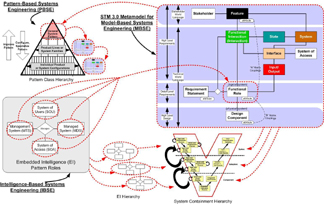The modern history of human approaches to understanding complex engineered systems:
- Resembles in some ways the transition from Aristotelian to Newtonian views of natural systems...
- For its first fifty years, systems engineering tradition has been to describe generalized systems using prose and less than scientific foundations, based on intuitive argument;
- This is not adequate for understanding and engineering complex, open, dynamically changing systems.
Post-Newtonian understanding of nature based upon Interactions:
- Lagrangian interactions as the foundation of modern physics, the sciences based upon that physics, and modern science-based engineering disciplines;
- A scientific basis for engineering disciplines, accounting for the accelerating rise in success of engineered systems during the last three hundred years.
In like manner, Systematica Methodology is based on the Interaction as the foundation of human understanding of systems:
- A System is a set of interacting components;
- Two components are said to "Interact" if one impacts the state of another;
- A Component can itself be a system (called a "Subsystem") ;
- Foundations for Systems Engineering based on return to the basic questions of Natural Philosophy, Language.
Further informed by modern understanding of emergence in complex systems, evolution in biology, development in epigenetic systems, advances in cognitive science, and emerging consciousness models:



